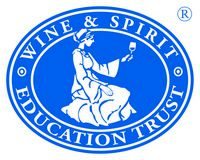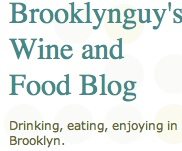 An ever present cloud of self doubt began lifting only ten minutes into Eric Asimov’s 2011 Wine Bloggers Conference keynote talk on responsible journalism, democratization of wine, and differences in generational paths to wine knowledge and appreciation. I breathed easier as he weaved in and out of these centerpiece issues, connecting and comparing his personal development as wine lover and journalist with today’s changing landscape of wine enthusiasts and writers. Don’t get me wrong, in no way am I likening myself to the New York Times’ wine critic who operates from a pinnacle of wine immersion and journalistic opportunity. I just felt less lonely, not as much the 50+ year old “black swan” wine blogger I imagine myself to be. I often wonder if I am dated, an antique missing the points of modern wine content and enthusiasm. But Asimov’s message was rife with permissions to end the fretting that casts doubt on the efficacy of publishing from my personal perspective.
An ever present cloud of self doubt began lifting only ten minutes into Eric Asimov’s 2011 Wine Bloggers Conference keynote talk on responsible journalism, democratization of wine, and differences in generational paths to wine knowledge and appreciation. I breathed easier as he weaved in and out of these centerpiece issues, connecting and comparing his personal development as wine lover and journalist with today’s changing landscape of wine enthusiasts and writers. Don’t get me wrong, in no way am I likening myself to the New York Times’ wine critic who operates from a pinnacle of wine immersion and journalistic opportunity. I just felt less lonely, not as much the 50+ year old “black swan” wine blogger I imagine myself to be. I often wonder if I am dated, an antique missing the points of modern wine content and enthusiasm. But Asimov’s message was rife with permissions to end the fretting that casts doubt on the efficacy of publishing from my personal perspective.
Unlike most wine bloggers, and a majority of the 300+ primarily young wine writers spending the weekend together in Charlottesville, VA, I cut my wine palate in the 1980’s without any formal certification or education, instead drinking, comparing, analyzing, and collecting what Asimov referred to as “benchmark” wines (top Bordeaux, Burgundy, California Cabernet, Cote Rotie, Chateauneuf du Pape, etc.) now rendered inaccessible for most young writers and drinkers by unfortunate wine market bubble economics. Today’s young drinkers come from a different place and are products of new palate training, wine heros, and sensibility guidelines. The stream of billions of tasting notes, tweets, and blog posts that brethren bloggers offer up every year, often without any context to the important levels of sensory human experience born from drinking fine wine with the right food and company, frustrates and confounds me. The gustatory reasons that lead me to love and write about wine seems lost in their content and conversations. I am not being critical of anyone’s personal preferences, instead emphasizing the disconnect I experience.
 Spending time this weekend with hundreds of bloggers was energizing, especially meeting a handful of really smart and creative content creators I only knew online heretofore. The fact I respect everyone’s commitment levels and enjoy the socializing only fuels my insecurities over the differences in the ways we think about wine and writing. Just this weekend, Wine Blogger Conference co-founder Joel Vincent wrote that in 13 hours on Sunday, 431 tweeters created 1,500 tweets and 3 million impressions, and that the entire three day conference conservatively reached 1.2 million people creating 10 million impressions. Compare that to the six bi-monthly issues of Robert Parker’s sole voice at the Wine Advocate that I grew up with in the eighties and nineties. Today I regularly follow more than 1,000 publishers of wine content on Twitter, almost the same amount on Facebook, and 30-40 on their blogs. A disproportionate chunk of this content leans toward shallow examinations of ordinary wines and experiences. What good does a tweet like this, similar to thousands of other pieces of content published every day, do for me or any other reader? “Killer Kilaurwen Riesling!! #wbc11“. Killer what? Over ice cream? Best wine she ever tasted? Top Riesling in a great vintage? From a top wine list? Killer texture, acidity, aromas? Please, what are you trying to tell me? These tweets are often retweeted and spread around by new age content publishers and social networkers for reasons I just can not get my brain around.
Spending time this weekend with hundreds of bloggers was energizing, especially meeting a handful of really smart and creative content creators I only knew online heretofore. The fact I respect everyone’s commitment levels and enjoy the socializing only fuels my insecurities over the differences in the ways we think about wine and writing. Just this weekend, Wine Blogger Conference co-founder Joel Vincent wrote that in 13 hours on Sunday, 431 tweeters created 1,500 tweets and 3 million impressions, and that the entire three day conference conservatively reached 1.2 million people creating 10 million impressions. Compare that to the six bi-monthly issues of Robert Parker’s sole voice at the Wine Advocate that I grew up with in the eighties and nineties. Today I regularly follow more than 1,000 publishers of wine content on Twitter, almost the same amount on Facebook, and 30-40 on their blogs. A disproportionate chunk of this content leans toward shallow examinations of ordinary wines and experiences. What good does a tweet like this, similar to thousands of other pieces of content published every day, do for me or any other reader? “Killer Kilaurwen Riesling!! #wbc11“. Killer what? Over ice cream? Best wine she ever tasted? Top Riesling in a great vintage? From a top wine list? Killer texture, acidity, aromas? Please, what are you trying to tell me? These tweets are often retweeted and spread around by new age content publishers and social networkers for reasons I just can not get my brain around.
Besides the human connection I cherish in sharing food and wine with friends, I admit to always wanting the best possible wine to be part of every meal. I pay attention to price, drink mostly $10-$50 wines, but without hesitation open bottles of older classics that have aged in my cellar for decades. That old cliche claiming “life is too short to drink bad wine” resonates deeply. Asimov shared some color about his appointment as the first New York Times first wine critic in 2004. Evidently, Critic titles were only given to Times’ journalists that covered cultural topics like dance, music, theater, movies, etc. In 2004 the New York Times recognized something I always knew, but never couched in exactly their way; pursuing wine knowledge to facilitate superior vignettes of dining and human connection is all about culture. Conversely, speed tasting 30 wines in a hotel ballroom, sitting at rounds of ten, a computer open in front of everyone, tweeting one line exclamations about each wine in rapid fire is a subculture that I just can not connect with.
 More of my new wine friends and colleagues are receiving their WSET certification or studying for other advanced wine degrees and credentials. I have no problem with this path of self education, but it is not the way I learned about wine. I learned through peer wine group tastings with a dozen guys, under perfect conditions, in a basement in Long Island. We ate together at the best restaurants, carried our wines with us, and developed buying and cellaring strategies together. While it was never overtly stated, our wine immersion was providing foundation knowledge for creating ultimate dining experiences. It was all very organic and it worked for me. Asimov suggests that tasting and spitting all by itself is never enough, that “you need to own and drink bottles with meals.” I know many people today who primarily gain their experience through formal coursework, and their knowledge and critical palates are impeccable. Without judgement, this new-age path to wine knowledge feels foreign to me; like the difference between learning baseball inside modern day suburban clinics instead of outside on Brooklyn pavements from ten thousand games of choose-up stickball.
More of my new wine friends and colleagues are receiving their WSET certification or studying for other advanced wine degrees and credentials. I have no problem with this path of self education, but it is not the way I learned about wine. I learned through peer wine group tastings with a dozen guys, under perfect conditions, in a basement in Long Island. We ate together at the best restaurants, carried our wines with us, and developed buying and cellaring strategies together. While it was never overtly stated, our wine immersion was providing foundation knowledge for creating ultimate dining experiences. It was all very organic and it worked for me. Asimov suggests that tasting and spitting all by itself is never enough, that “you need to own and drink bottles with meals.” I know many people today who primarily gain their experience through formal coursework, and their knowledge and critical palates are impeccable. Without judgement, this new-age path to wine knowledge feels foreign to me; like the difference between learning baseball inside modern day suburban clinics instead of outside on Brooklyn pavements from ten thousand games of choose-up stickball.
I have a couple of blogger friends that boast membership to something like the “Wine 100 Club”, having successfully tasted wines made from 100 different grapes. Is this what wine culture has become? Contests and check lists? I watched Wine Blogger Conference attendees move from table to table tasting wines at Monticello in systematic fashion, weathering 100 degree temperatures so they could sample scores of wines. I left after twenty minutes and headed to the hotel pool. Were they appreciating these bottles in the torrid heat or just checking off sips and spits like notches on bedposts? Asimov mentioned that his children used to play a game of counting the number of states they had visited. They included states where they only connected through by plane, never leaving the airport terminal. He likened his children’s naive view of depth of experience to the process of simply “tasting to taste” and not experiencing all that drinking a bottle of wine with the right food can offer.
 This weekend I met the Wine Harlot, a fine lady with a very, very serious online wine following. Nannette Eaton (IRL) is quite intuitive and I watched as her radar sounded alarms following her first glimpse at my “black swan” profile asking me, as if poking fun, whether I was “that guy” who brought my own wine glasses to restaurants. Well, I am, sometimes. If I bring wines to a restaurant from my cellar, and know the restaurant’s wine service is weak, I bring proper glassware to showcase these “benchmark” wines I cared for over 20+ year aging periods to create magical transformations. Of course it smacks of wine snobbery to some, actually to many younger enthusiasts I meet up with; but not to me. I compulsively fixate on maximizing enjoyment of each wine experience to its fullest capacity, and prefer the advantages top vessels lend to aromatics and targeted palate delivery. Am I now really an eligible subject for a New Yorker cartoon?
This weekend I met the Wine Harlot, a fine lady with a very, very serious online wine following. Nannette Eaton (IRL) is quite intuitive and I watched as her radar sounded alarms following her first glimpse at my “black swan” profile asking me, as if poking fun, whether I was “that guy” who brought my own wine glasses to restaurants. Well, I am, sometimes. If I bring wines to a restaurant from my cellar, and know the restaurant’s wine service is weak, I bring proper glassware to showcase these “benchmark” wines I cared for over 20+ year aging periods to create magical transformations. Of course it smacks of wine snobbery to some, actually to many younger enthusiasts I meet up with; but not to me. I compulsively fixate on maximizing enjoyment of each wine experience to its fullest capacity, and prefer the advantages top vessels lend to aromatics and targeted palate delivery. Am I now really an eligible subject for a New Yorker cartoon?
There is a movement among new wine writers to drink local. It’s honorable on some level. Lenn Thompson, a really great guy from Long Island who deservedly won this year’s Wine Blog award for “Best Single Subject” coverage of New York State wine in his New York Cork Report, is passionate about drinking local. His blog covers the NY State wine scene from Long Island’s east forks to the Niagara wine growing region, and he promotes drinking local wines wherever you are. It is a cause I do not subscribe to and doesn’t figure into my drinking regimens. I am not picking on Lenn, but he is one of the high profile purveyors of this thought. I wonder if local drinking proponents also buy American cars? Do they buy American TVs or instead watch flat screen Sonys and Hitachis?
 When I find myself in the Languedoc or Rhone Valley, I put my jug under the Mourvedre spicket at local coops and markets because the wine is often very good, first….local second. Long Island wines can be worthy beverages, sometimes, just as affordable California wine can be good…again sometimes. If I am drinking wine every day spending $10-$30 per bottle, I can not produce the kind of experience I desire drinking local just anywhere. But, drinking local is a piece of the new wine enthusiast culture that was simply not in play when I carved out my own biases. Asimov didn’t miss his chance to point out we are now sadly left with $10-$20 California “imitations of their more expensive 90 point rated wines that are weak facsimiles of these more expensive, highly rated wines. Those wines are useless.” Why should Californians drink local in the low end price range when they can buy Spanish and French wines from less popular regions in France’s Southwest, the Loire Valley, or Galicia in Spain? Drinking local is a cause, not a smart drinking strategy. I stopped drinking California wines with any regularity in the late nineties and wonder with amazement at the plethora of “rave” content that is published every day on blogs and Twitter about these wines that I have no time for anymore. Are these people writing about the same wines that they claim to be tasting?
When I find myself in the Languedoc or Rhone Valley, I put my jug under the Mourvedre spicket at local coops and markets because the wine is often very good, first….local second. Long Island wines can be worthy beverages, sometimes, just as affordable California wine can be good…again sometimes. If I am drinking wine every day spending $10-$30 per bottle, I can not produce the kind of experience I desire drinking local just anywhere. But, drinking local is a piece of the new wine enthusiast culture that was simply not in play when I carved out my own biases. Asimov didn’t miss his chance to point out we are now sadly left with $10-$20 California “imitations of their more expensive 90 point rated wines that are weak facsimiles of these more expensive, highly rated wines. Those wines are useless.” Why should Californians drink local in the low end price range when they can buy Spanish and French wines from less popular regions in France’s Southwest, the Loire Valley, or Galicia in Spain? Drinking local is a cause, not a smart drinking strategy. I stopped drinking California wines with any regularity in the late nineties and wonder with amazement at the plethora of “rave” content that is published every day on blogs and Twitter about these wines that I have no time for anymore. Are these people writing about the same wines that they claim to be tasting?
With samples flowing from wineries and their PR agents to bloggers all over the country, new young writers are more prone to become, as Asimov puts it, “wrapped up in the industry.” He recalled how wine writing in Europe, in the early days, suffered from the same dynamic and how the US market’s savvy intolerance pushed wine writing towards wine criticism. He challenged writers to become curious, more investigative in a way, to stay open to answers that might conflict with popular thinking (Asimov noted how Parker and his peers established “low yield” as a widely accepted quality farming practice, but hinted that if you ask back country farmers in southwest France, for example, you may get a different answer suggesting achievement of “optimal” yield), to not take for granted what you think are the right answers, and not become intertwined in the wine industry.
 “Succumbing to humility means we don’t have to be know-it-alls,” and Asimov urged bloggers to consider this path, pointing to Gary Vaynerchuk, Alice Fiering, and my favorite wine writer of all, Brooklynguy, for sharing their own developed points of view without ever attempting to cover up gaps in knowledge with cloaks of widely accepted points of view. Asimov underscored the Brooklynguy’s approach as “never trying to be anything that he wasn’t….always extremely humble about his attitude toward wine, and while he has become more experienced, he never talks down to anyone in his writing.” This all makes sense to me and I suspect that even if bits of this guidance is heeded, the result will render the immense volume of published daily content more valuable to its readers.
“Succumbing to humility means we don’t have to be know-it-alls,” and Asimov urged bloggers to consider this path, pointing to Gary Vaynerchuk, Alice Fiering, and my favorite wine writer of all, Brooklynguy, for sharing their own developed points of view without ever attempting to cover up gaps in knowledge with cloaks of widely accepted points of view. Asimov underscored the Brooklynguy’s approach as “never trying to be anything that he wasn’t….always extremely humble about his attitude toward wine, and while he has become more experienced, he never talks down to anyone in his writing.” This all makes sense to me and I suspect that even if bits of this guidance is heeded, the result will render the immense volume of published daily content more valuable to its readers.
While Asimov’s talk featured his own developed thinking about journalism and wine enthusiasm, it also soothed the constant anxiety and conflict I personally wrestle with knowing I am usually out of step, a black swan among more youthful wine content creators and enthusiasts. I hope I am forgiven for all these generalizations. There is no intention to cast aspersions or stones on the friends I value or the great voices like Steve Heimoff, The Brooklynguy, and other top writers. I am just admitting to the differences.
Asimov says “Wine should not be venerated fetishistic…it is just something you should enjoy with a meal.” And while he gives credit to current day content creators for “democratizing wine appreciation” and helping to create the “21st century connoisseur who knows there is diversity and a wealth of wonderful wines from Beaujolais, Loire, Greece, and Eastern Europe..wines that were once consumed locally but are now available across the world,” he is quick share his despise for the term ‘wine appreciation’ because it “makes it into something genteel that a bourgeois society should appreciate…and completely misses the importance of organic appreciation.” Thanks Eric, I just don’t feel nearly as alone anymore.